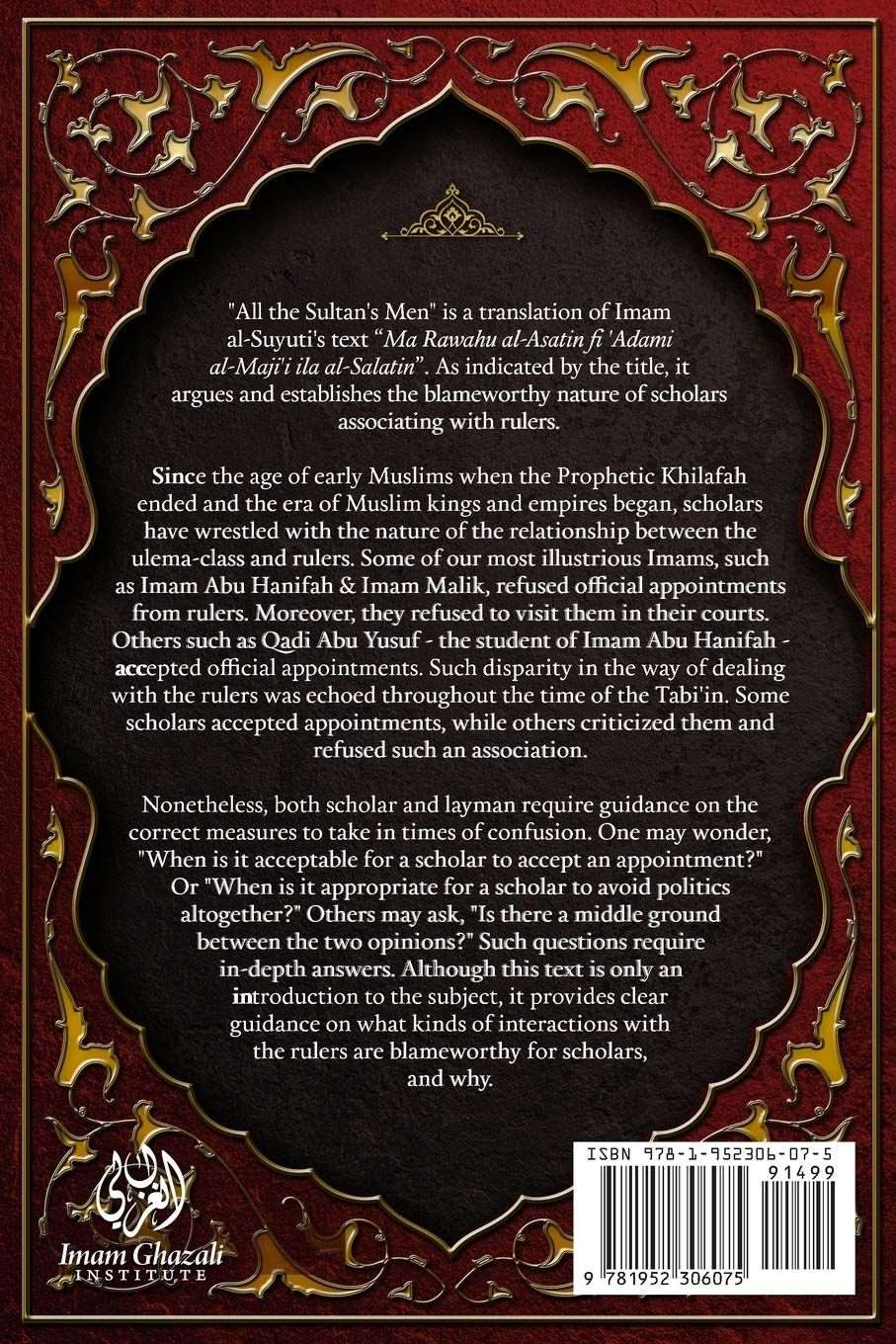About The Book
"All the Sultan's Men" is a translation of Imam al-Suyuti's text “Ma Rawahu al-Asatin fi 'Adami al-Maji'i ila al-Salatin”. As indicated by the title, it argues and establishes the blameworthy nature of scholars associating with rulers. Since the age of early Muslims when the Prophetic Khilafah ended and the era of Muslim kings and empires began, scholars have wrestled with the nature of the relationship between the ulema-class and rulers.
Some of our most illustrious Imams, such as Imam Abu Hanifah & Imam Malik, refused official appointments from rulers. Moreover, they refused to visit them in their courts. Others such as Qadi Abu Yusuf - the student of Imam Abu Hanifah - accepted official appointments. Such disparity in the way of dealing with the rulers was echoed throughout the time of the Tabi'in. Some scholars accepted appointments, while others criticized them and refused such an association.
Nonetheless, both scholar and layman require guidance on the correct measures to take in times of confusion. One may wonder, "When is it acceptable for a scholar to accept an appointment?" Or "When is it appropriate for a scholar to avoid politics altogether?" Others may ask, "Is there a middle ground between the two opinions?" Such questions require in-depth answers. Although this text is only an introduction to the subject, it provides clear guidance on what kinds of interactions with the rulers are blameworthy for scholars, and why.
Contents:
1. The Prohibition of Visiting the Rulers in the Prophetic Sunnah
2. The Most Hated of People to Allah
3. Will the Person who enters upon the Ruler drink from the Lake of the Prophet p.b.u.h?
4. The Jurists are the Custodians of the Messengers
5. The Scholar will have the Same Punishment as the Ruler
6. From the Attributes of the Scholars of the End Times
7. Seditious Rulers
8. People who will study the Jurisprudence of the Religion for the Goods of this World
9. The Ruling of one who approaches the Ruler through Flattery
10. Warning against sitting in the Ruler’s Gathering
11. The one who visits the Ruler loses his religion
12. Blameworthy traits in the Seekers of Knowledge
13. Beware of going Headlong into Sedition
14. The counsel of Wahb ibn Munabbih to ‘Ata’
15. Do not sit with Heretical People
16. Beware of desires and disputes
17. The states of the Pious Predecessors regarding the Governors
18. Three kinds of Scholars
19. The benefit of the people of Knowledge defending Knowledge
20. Abu Hazim al-Zahid and the Rulers of Bani Umayyah
21. Hammad Ibn Salamah and the Governor of Iraq
22. The Situation of those who associate with the Rulers
23. That which is unbecoming of the Scholar
24. The most noble thing in the End Times
25. The words of some Poets on coming to the Rulers
show more



